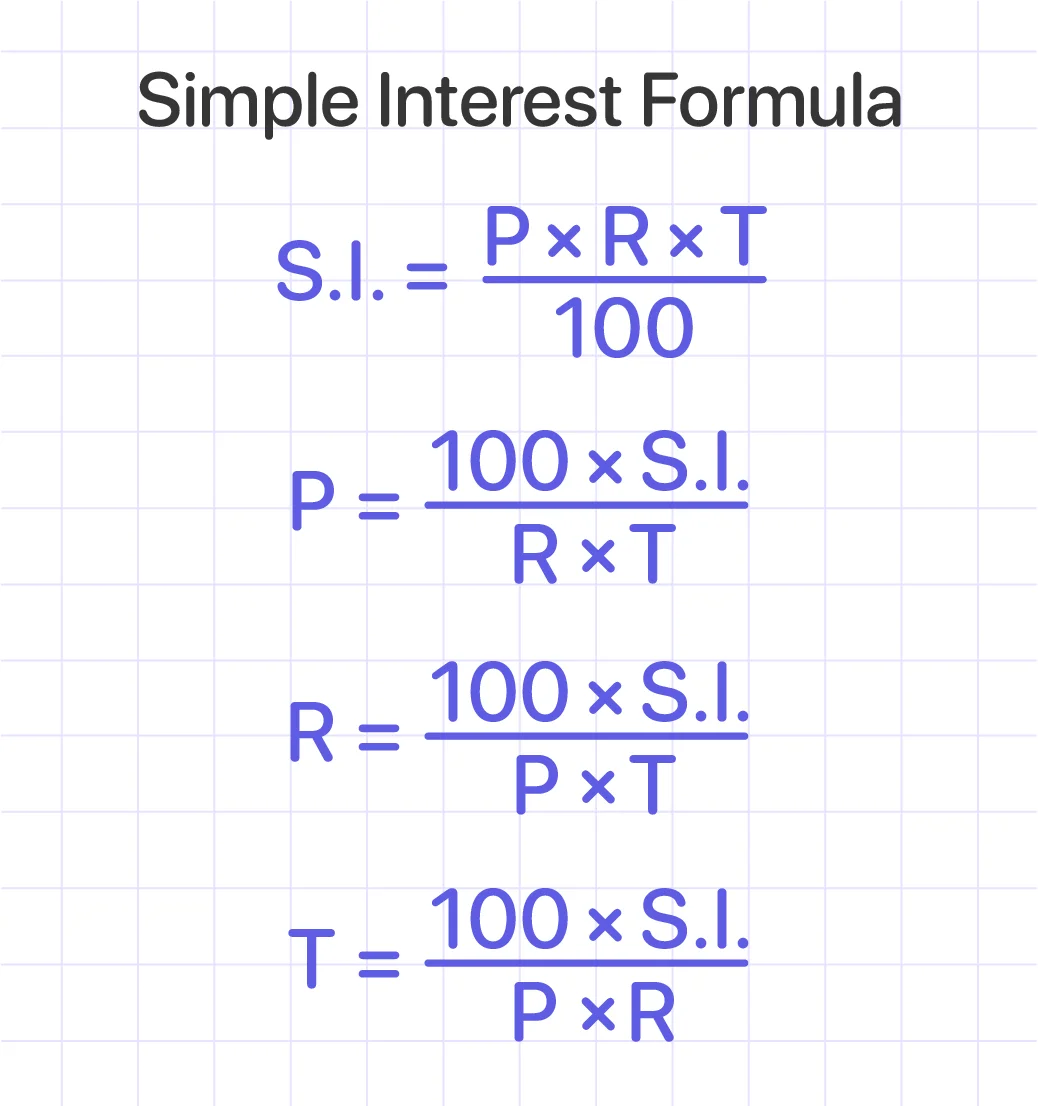Simple interest
Simple interest is a method for calculating the amount of interest charged on a sum over a set period of time at a set rate.

P = Principal (the amount that was initially borrowed from the bank or invested);
R = Rate of Interest in % per annum;
T = Time, usually calculated as the number of years;
The rate of interest is in percentage r% and is to be written as r/100.
Example 1:
How much simple interest will Maria pay if she borrows $46,500 for a term of 21 months at a rate of 20 %/year?
Solution:
The principal amount is $46,500, and the interest rate is 20% (20/100). The specified time span is 21 months, which equals 21/12 years. Using the interest formula, I = P R T. I = 46500 20/100 21/12, which is $16800.
Answer: Maria will pay $16,800.
Example 2:
$500 is lent for two years at a simple interest rate of 4%. Calculate the interest earned.
Solution:
So, we have such values:
Time is 2 years: t = 2
The initial amount is $500: P = 500
The rate is 4%: r = 0.04
Now, we should apply the formula:
S.I. = P x r x t
S.I. = 500 x 0.04 x 2 = 40
Answer: The interest earned is $40.